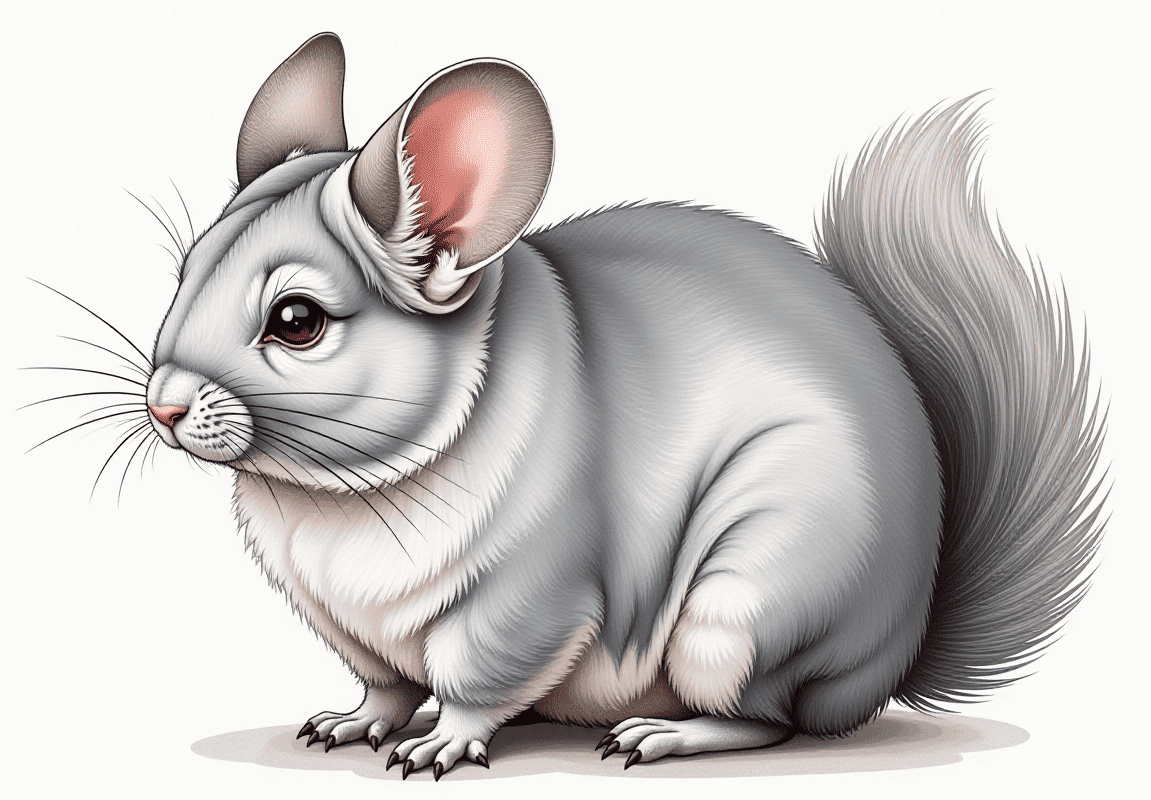How to Keep Chinchilla Warm in Winter
Chinchillas are adorable, fluffy pets known for their thick fur and playful nature. However, their sensitivity to temperature changes makes it vital to ensure they stay warm during the winter months. In this guide, you’ll learn everything you need to know about how to keep chinchilla warm in winter while ensuring their safety and comfort.
Understanding Your Chinchilla’s Needs
Chinchillas thrive in environments with temperatures ranging between 60°F to 75°F. Due to their dense fur, they are better equipped to handle cool temperatures than excessive heat, but prolonged exposure to cold can lead to hypothermia and stress. Your job as a pet owner is to maintain an optimal environment by closely monitoring their living conditions.
A chinchilla’s natural habitat in the Andes Mountains is cool but stable. Winter conditions in your home, however, can vary dramatically. Drafts, cold floors, and fluctuating temperatures can create a hazardous environment.
Preparing Your Chinchilla’s Environment

Choose the Right Location for Their Cage
The first step is to place your chinchilla’s cage in a suitable location. Avoid areas near drafty windows, doors, or cold walls. Place the cage on a raised surface, such as a table or stand, to prevent cold from seeping in through the floor.
Make sure the cage isn’t in direct contact with heaters, as overheating can be as dangerous as cold exposure.
Use Proper Insulation
To keep your chinchilla cozy, line the inside of their cage with fleece liners. Fleece is soft, warm, and easy to clean, making it ideal for insulation. You can also use cage covers or drape a blanket around the sides, but ensure proper ventilation to avoid trapping moisture.
For added warmth, consider heat-reflective materials around the cage. These materials can retain heat without exposing your pet to direct heating sources.
Use a Reliable Heating Source

Safe heating devices designed for small animals can make a significant difference. Opt for heating pads that are specifically built for chinchillas, ensuring they have an auto-shutoff feature to prevent overheating. Never use open flames, heat lamps, or space heaters directly near their cage, as these can pose fire risks.
Monitoring and Maintaining Warmth
Invest in a thermometer to keep track of your chinchilla’s environment. The temperature should remain consistent, as sudden drops can cause stress or illness. Place the thermometer near the cage to get an accurate reading.
Humidity also plays a role in your chinchilla’s comfort. Aim for a humidity level of 40% to 60% to avoid respiratory problems. Too much humidity can make their environment damp, while too little can dry out their sensitive skin.
Signs Your Chinchilla May Be Too Cold:
- Lack of activity or eating.
- Shivering or puffing up their fur.
If you notice these symptoms, take immediate action to warm their environment.
Dietary Adjustments for Winter

During colder months, chinchillas burn more energy to maintain their body temperature. Providing a slightly higher-calorie diet can help them stay warm. High-quality hay and pellets should make up the bulk of their diet, but you can also offer small portions of healthy treats like dried rose hips for added energy.
Avoid overfeeding sugary or fatty treats, as these can upset their delicate digestive system. Fresh water is equally essential—ensure it doesn’t freeze if their water bottle is near a cold window or drafty area.
Ensuring Your Chinchilla’s Comfort During Winter Activities

Chinchillas love to play and explore, but during winter, it’s essential to limit their exposure to cold air. Avoid taking them outside, even for short periods, as the drop in temperature can be harmful.
Inside the home, provide them with warm, cozy hideouts. Fleece tunnels or hammocks can give them a comfortable place to rest while adding insulation to their living space. Keep their environment stimulating with toys to reduce stress, as stress can make them more vulnerable to illness.
Common Mistakes to Avoid
Overheating the Environment
While keeping your chinchilla warm is crucial, overheating can be equally dangerous. Chinchillas don’t sweat, so they can quickly overheat if the temperature rises above 75°F. Always use controlled heating methods and avoid placing their cage near radiators or fireplaces.
Using Unsafe Heating Devices
Not all heating devices are chinchilla-safe. Avoid using heat lamps, space heaters, or electric blankets, as these can cause burns or fires. Stick to products designed specifically for small pets.
Ignoring Early Signs of Cold Stress
Chinchillas are experts at hiding discomfort. If you notice behavioral changes, such as reduced activity or appetite, act quickly to investigate the cause.
Expert Tips for Advanced Care
If you’re living in an area with extreme winters, consult a veterinarian for advice on advanced chinchilla care. They may recommend specialized products or offer tips tailored to your region.
Consider investing in smart temperature control systems. These devices can maintain a consistent environment for your chinchilla, even when you’re not at home.
Conclusion
Ensuring your chinchilla stays warm in winter requires attention to their environment, diet, and daily activities. By following the steps outlined in this guide, you’ll provide a safe, cozy home for your furry friend and reduce the risks associated with cold exposure.
Remember, the key to how to keep chinchilla warm in winter is balancing warmth, safety, and comfort. Take the time to monitor their needs, and you’ll enjoy a happy, healthy chinchilla all year round.
FAQ
What temperature is too cold for chinchillas?
Anything below 60°F is considered too cold and can put your chinchilla at risk of hypothermia.
Can I use a blanket to keep my chinchilla warm?
Yes, but only around the cage for insulation. Avoid covering the cage completely to ensure proper ventilation.
What are signs that my chinchilla is too cold?
Signs include shivering, huddling, inactivity, and puffing up their fur.
By implementing these tips, you can ensure your chinchilla enjoys a warm, comfortable winter season.
